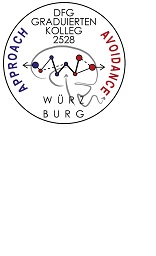Research Training Groups
Thrombo-inflammation refers to the close interplay between thrombocytes (platelets), the coagulation system and the body’s inflammatory responses. In conditions such as stroke, infections, autoimmune disorders or severe injuries, thrombosis and inflammation are tightly intertwined, yet their interaction remains insufficiently understood. The aim of the Research Training Group is to unravel the key regulatory mechanisms underlying these processes and to identify novel therapeutic targets. To this end, state-of-the-art methods such as single-cell analyses, high-resolution imaging and intravital microscopy are employed, providing new insights into platelet behaviour under pathological conditions.
Location: Würzburg
Speaker: Prof. Dr. Bernhard Nieswandt (Chair of Experimental Biomedicine I)
Duration: 05/2026-04/2031
Further information can be found here.
People spend a large part of their lives engaging with stories — among other reasons, to process experiences or to share information. Recent research has shown that stories exert a powerful influence on users and audiences. New media environments such as artificial intelligence, virtual realities, and social media raise new questions in this context. What influence do digital media have on the psychosocial development of children? The goal of the Research Training Group “The Experiences of Stories in the Digital Age” is to provide a research environment that connects communication sciences, psychology, and computer sciences in order to advance research on the processing and effects of stories in the digital age and to address the associated epistemological challenges.
Location: Würzburg
Speaker: Prof. Dr. Markus Appel (Chair of Psychology of Communication and New Media)
Duration: 04/2026-03/2031
Further information can be found here.

Particle physics is driven by fundamental questions, such as the nature of the basic constituents of matter and their interactions at high energies, as well as cosmological puzzles, such as the properties of dark matter. Within the Research Training Group (RTG) 2994, the participating researchers aim to utilize experimental data from the Large Hadron Collider (LHC) at the European Organization for Nuclear Research (CERN) and to confront these data with the precise predictions of the underlying models of particle physics.
Location: Würzburg
Speaker: Prof. Dr. Werner Porod (Institute of Theoretical Physics and Astrophysics)
Duration: 01/2025-12/2029
Further information can be found here.

Fluorescence and phosphorescence, two forms of photoluminescence, are of great im-portance for many applications. Researchers within the international research training group (IRTG 2991) will contribute to this important field of research with fundamental studies on structure-emission relationships in tailored supramolecular architectures. They will thereby not only focus on the luminophore but also consider the surrounding environment of the luminophore (i.e. the matrix).
Location: Thiruvananthapuram (India), Würzburg
Speaker: Prof. Dr. Frank Würthner (Institute of Organic Chemistry)
Duration: 10/2024-09/2029
Further information can be found here.

The behavior of animals and humans is fundamentally characterized by approach and avoidance. Do I seek the closeness of others or do I avoid social contacts, do I face challenges or do I avoid stress? Such behavioral patterns are controlled by processes in the brain, which aim to achieve desired (approach) or avoid undesirable (avoidance) experiences and situations. As part of the Research Training Group 2660, scientists at JMU aim to better understand avoidance, approach and the tension between these two behavioral tendencies and investigate their impairment in the context of mental disorders.
Location: Würzburg
Speaker: Prof. Dr. Matthias Gamer (Institute of Psychology)
Duration: since 2021
Further information can be found here.

The aim of GRK 2243 is to elucidate biochemical and pathogenic mechanisms of the ubiquitin system. The research thereby focuses on a deeper mechanistic understanding of disease-relevant enzymes of the ubiquitin system, which guides the subsequent analysis of the pathogenic consequences of their malfunction. The long-term goal is to identify new strategies to treat ubiquitin-related diseases. The GRK's qualification program aims to train doctoral candidates in a wide range of modern methods and concepts of ubiquitin research, spanning structural biology, biochemistry, molecular cell biology, tumor biology, microbiology, functional genomic screens, in silico drug design and proteomics.
Location: Würzburg
Speaker: Prof. Dr. Alexander Buchberger (Chair of Biochemistry I)
Duration: 2017-2026
Further information can be found here.






